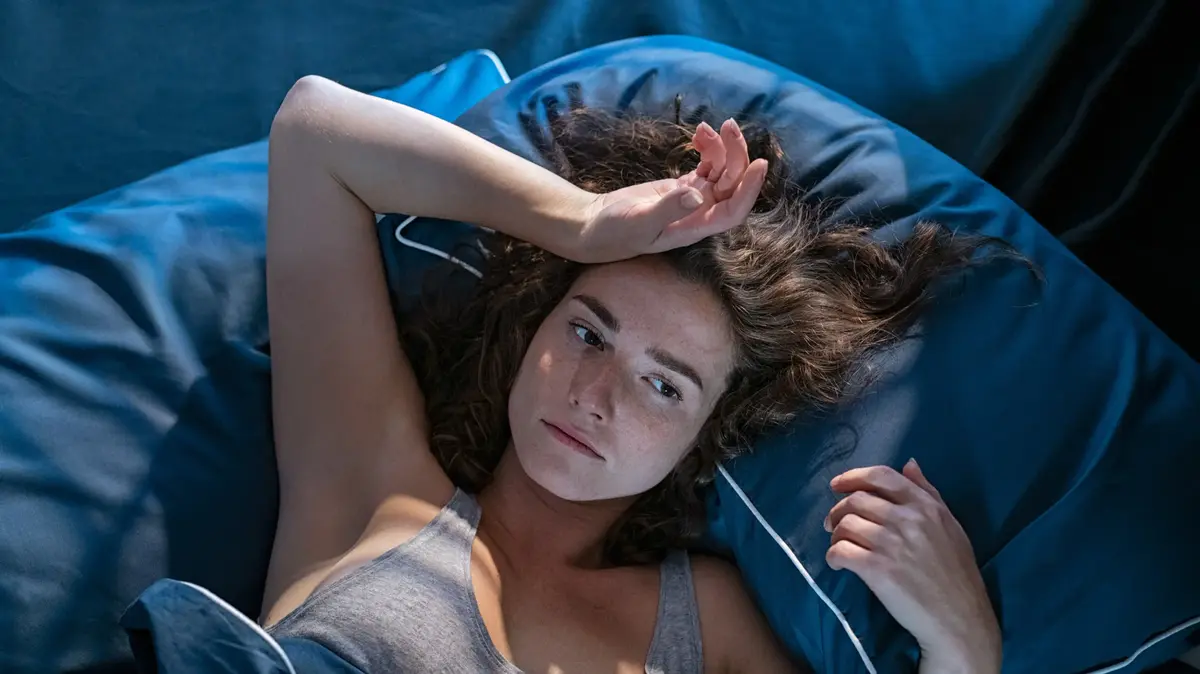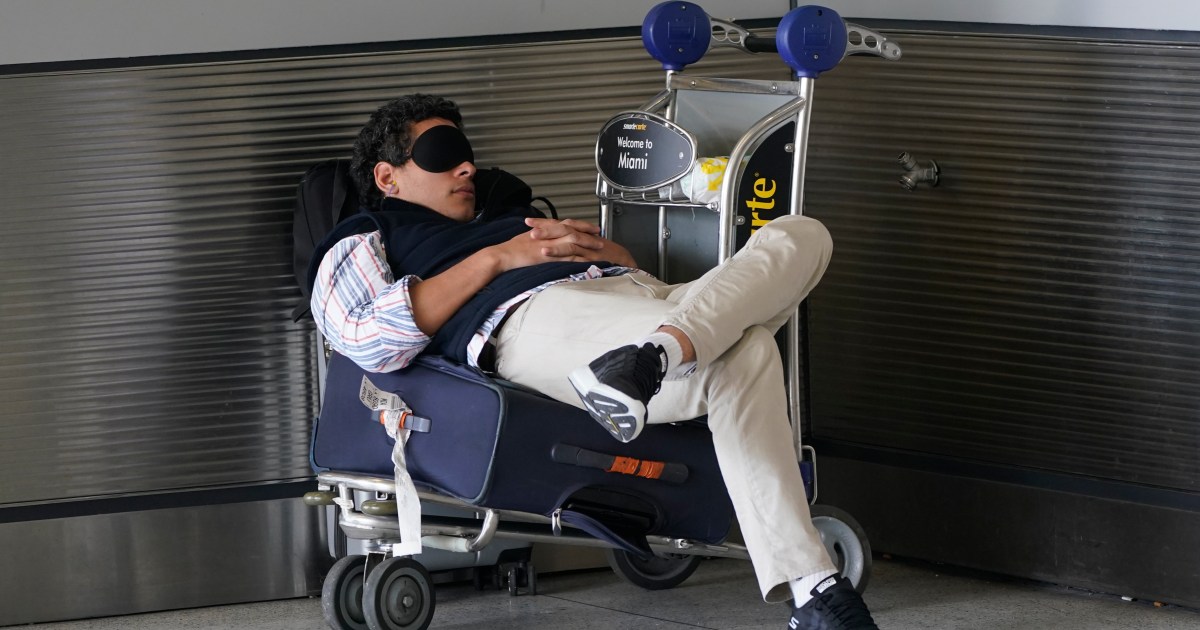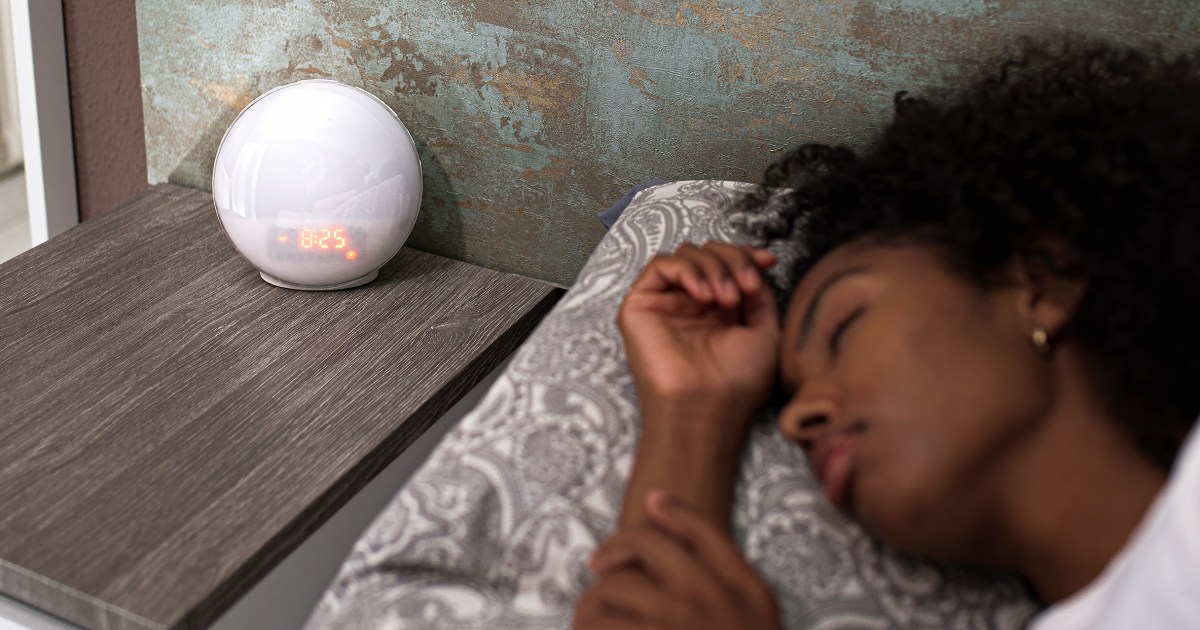We have all slept badly in the past year.
How do you fix it?
There is not a single organ in our body that is not affected by sleep deprivation, and unfortunately - most of us just do not get enough sleep.
Prof. Ribi Tauman, director of the Center for Sleep Medicine at Ichilov, explains in the podcast "Expert Clinic" how exactly we need to sleep - and how we manage to do it.
Listen
Iris Cole
31/12/2021
Friday, 31 December 2021, 07:55
Share on Facebook
Share on WhatsApp
Share on Twitter
Share on Email
Share on general
Comments
Comments
The corona years have affected us in a lot of sucks ways, and one of them is significant damage to our sleep.
Lots of people complain that they are not sleeping well enough, and that they are just tired.
Prof. Ribi Tauman, director of the Center for Sleep Medicine at Ichilov Hospital, was a guest on the "Specialist Clinic" podcast to explain why our sleep is impaired, how it affects health, and of course - is there a way to change this sad reality.
"I think this is one of the epidemics of the Western world - an epidemic of insomnia, we do not sleep enough," said Prof. Tauman. We work more hours, try to do things during the hours we are awake, and everything goes at the expense of sleep. "
More on Walla!
Want to keep your heart?
This is the time when you should go to bed
To the full article
The sleep deprivation epidemic has some obvious culprits, like the screens that keep us awake for long hours, but there are also more surprising culprits.
"Exercise too - it is clear to everyone that it is important to exercise, I am also in favor, but most of us pay the price that we sleep less to exercise, but we must remember that sleep is no less important than exercise when it comes to health, and should not be deprived," explained Prof. 'Taumen.
There is no organ in our body that is not affected by lack of sleep
Prof. Tauman.
She said that "indeed there have been changes in the last 10 years, and there is an understanding that sleep is important and that it is not a dead time of our lives", and yet - we do not sleep enough, and it has heavy prices.
Sleep duration has decreased by two hours in the last 40 years.
is not that a loss?
Woman tries to fall asleep (Photo: Giphy)
The list of consequences of lack of sleep is long, and affects every aspect of our lives.
"Lack of sleep leads to poor functioning during the day. Malfunction can be brain function - memory, concentration, mood, reaction time at the wheel," Prof. Tauman explained. Heart disease, hypertension, diabetes, brain disease. "
She stressed that "there is no organ in the body that is not harmed by the fact that we do not get enough sleep or do not sleep well."
In the last episodes:
Every woman just has to know about these 3 cancers
Scooters endanger your life.
More than you think
Doctors and clients agree: this is the safe solution to pain
She added that people who do not get enough sleep, gain weight over the years, as "sleep affects eating, and eating affects sleep."
Those who do not sleep at the right hours - do not eat at the right hours, and vice versa.
"It's an egg and a chicken. We need regular patterns for our health, it's part of good health," she explained.
Another reason for the link between sleep and obesity is the effect of sleep deprivation on hormones associated with hunger and satiety.
"There is a disruption in these hormones, so there is a wrong choice of foods - a greater tendency to carbohydrates and sugars. This is also seen in babies," she explained.
How much should we sleep?
In children it depends on age, and each stage of childhood needs long hours of sleep.
Here is the list
adolescents and young adults need 8-9 hours of sleep a night,
adults need 7-8 hours of sleep a night
in the third age there are those who can settle for 6-7 hours in
other words, most of life we need 7-8 hours of sleep a night, and when it does not happen - we Just not at our best.
Is it possible to complete sleeping hours on the weekend?
By and large - no.
"For immediate functioning, a nap probably helps. But in the long run, we can not sleep for five days and sleep for two days," she explained. "Later and getting up later. This change in the timing of sleep is also related to illness. It is not a healthy thing, although it is in an attempt to compensate for the lack of sleep. It also has consequences."
So how do you sleep better?
The most important thing is to "strive for year-round sleeping times to be more or less at the same times," Prof. Tauman said, "of course life is disruptive, but one should try to maintain regular waking hours."
In addition, it is important to prevent sleep disorders.
"If there is a breathing disorder in sleep or other disorders - they need to be treated," said Prof. Tauman, explaining that these disorders can be identified by unresponsive sleep or poor functioning even after sufficient hours of sleep.
In sleep apnea if you wake up because of a feeling of suffocation - it is also a suspicion.
Even waking up with dry mouth or having to drink at night, should raise suspicion.
Do not let yourself sleep until noon on the weekend.
An old woman (Photo: Giphy)
Prof. Tauman also recommends not sleeping with a TV or monitors.
"When you fall asleep with a TV, it increases the chance that you spend hours in bed watching TV. The bed is meant for sleep, and when you put more elements of life in there - we impair sleep," she said. "Then you wake up in the middle of the night and need a screen and sounds to go back to sleep. There is a dependence between screen and sounds and falling asleep."
She stressed that "good sleep efficiency is when you go to bed for sleep purposes, fall asleep and get up in the morning."
Watch the full episode:
Specialist Clinic - Sleep Disorders (Photo: Walla !, Walla)
Another tip worth adopting is to give a "sleeping vestibule". According to Prof. Tauman, "The preparation should be to downshift. Anyone who downshifts in the right way, most of us will downshift if we part with the screens, especially from work and any communication through the screens. Exercise should be finished 3 hours before going to bed."
And if all these do not work, of course there are also medical treatments. "In insomnia, the first line is always behavioral," she said, adding that she would always offer behavioral therapy first - CBTI, which is the most effective. If it fails or you need extra help, or if it is not financially feasible, "we suggest medication. We know so much about the consequences of sleep deprivation that it is better to sleep with pills than not to sleep without pills."
In this context it is worth emphasizing that if you are sleeping with sleeping pills, it is important to take them at the right time.
"If you decide to start medication for insomnia, the preference will be to give the treatment at the beginning of the night and not in the middle. We want to prevent the awakening at night."
health
Tags
Sleep
Sleep Disorders
Insomnia















